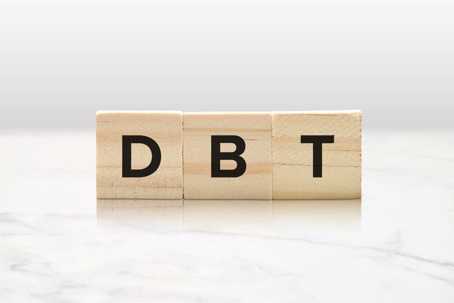Understanding Dialectical Behavior Therapy (DBT)
Struggling with intense emotions or challenging relationships? You’re not alone—and Dialectical Behavior Therapy (DBT) could be the support you’re looking for. Known for its unique blend of mindfulness, emotional regulation, and effective therapeutic techniques, DBT helps people create balance and take meaningful steps toward positive change. While it was originally developed to treat Borderline Personality Disorder (BPD), DBT has since become a lifeline for managing mental health conditions like anxiety, depression, PTSD, and eating disorders.
This post breaks down DBT in a way that’s easy to understand, covering its origins, core principles, and how it can improve emotional well-being. Whether you’re exploring therapy options or simply curious to learn more, DBT offers tools to help you regain control and build resilience.
What is Dialectical Behavior Therapy?
Developed in the late 1980s by psychologist Dr. Marsha Linehan, DBT was created to better address the needs of people struggling with chronic suicidal thoughts and BPD. Traditional therapy wasn’t cutting it for this group, so Dr. Linehan introduced an approach that balanced two key ideas—acceptance and change. By combining cognitive-behavioral techniques with mindfulness practices, DBT focuses on living in the moment, understanding emotions, and building skills to create meaningful change.
At its core, DBT helps people accept themselves for who they are today while also empowering them to work toward who they want to be tomorrow. The balance between understanding your emotions and learning how to manage them makes DBT a one-of-a-kind therapy.
Core Principles of DBT
A big part of DBT is learning to see life as a series of opposites—where you can hold two truths at the same time. For instance, you can accept where you are while also striving for improvement. It’s this balance between "acceptance" and "change" that creates growth.
DBT therapists teach skills that help individuals acknowledge their emotions without judgment, process them in a healthy way, and create strategies for change. Acceptance skills include mindfulness and distress tolerance (learning to stay calm during tough moments). Change skills, on the other hand, focus on problem-solving, improving relationships, and learning healthier ways to cope. Together, these tools provide a solid foundation for navigating life’s emotional ups and downs.
DBT in Action
DBT is delivered in a structured way, typically involving four components:
- Individual Therapy - One-on-one sessions to address personal challenges and practice new strategies for handling emotions.
- Group Skills Training - A supportive environment to learn practical skills like managing triggers, navigating relationships, and calming your mind.
- Phone Coaching - Access to your therapist during tough moments to help you use DBT skills when they’re most needed.
- Therapist Support - Behind the scenes, DBT therapists work as a team to ensure they’re giving the best possible care to their clients.
By addressing every angle of someone’s emotional well-being, DBT takes a comprehensive approach to help clients make lasting progress.
Benefits of DBT for Mental Health
Effective in Treating BPD and Beyond
DBT is widely recognized for its ability to transform the lives of individuals with Borderline Personality Disorder (BPD). It’s often the go-to treatment because of its success in reducing emotional instability, self-harming behaviors, and even suicidal thoughts. But DBT's benefits go far beyond BPD.
It’s proven effective for managing depression, anxiety, PTSD, and eating disorders. For instance, mindfulness techniques taught in DBT help individuals with anxiety or depression stay present and release themselves from negative thought spirals. Similarly, distress tolerance skills can be life-changing for people with PTSD, helping them process trauma without feeling overwhelmed.
Builds Emotional Strength
One of the standout benefits of DBT is its ability to strengthen emotional and cognitive skills. Through this therapy, individuals learn how to identify their emotions, regulate them proactively, and manage life’s inevitable stressors.
For example, a person may go from reacting impulsively during conflicts to calmly expressing their needs and setting boundaries. These shifts improve not only personal well-being but also the quality of relationships. DBT isn’t just about feeling better—it’s about living stronger and more balanced.
Take the First Step Toward Healing
Life doesn’t have to feel overwhelming, and you don’t have to face mental health challenges alone. If you’re in the Prescott, AZ area, Decision Point Center offers compassionate DBT services tailored specifically to your needs. Our expert team is here to guide you every step of the way with proven strategies to manage emotions, build healthier relationships, and create lasting change.
Call us now at (844) 292-5010 to learn how DBT can help you or someone you love take back control and create a brighter future. Your path toward balance, growth, and healing starts here!

